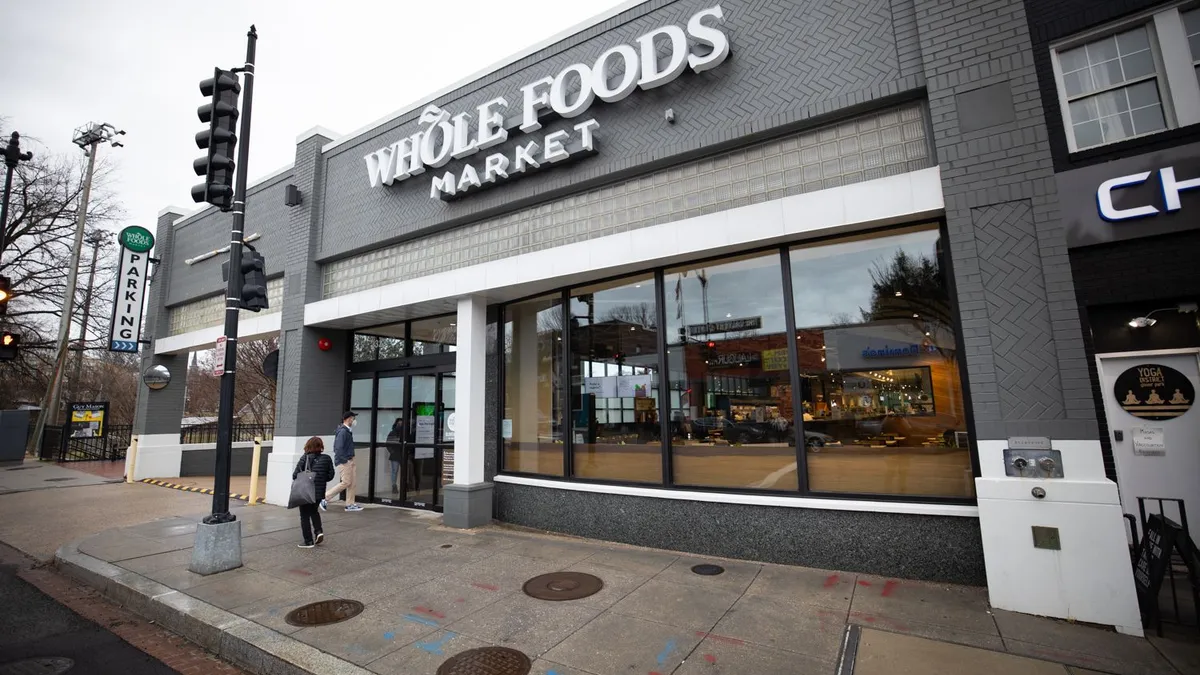LAS VEGAS — As Jason Buechel settles into his role as Whole Foods Market’s new chief executive, he is looking to chart the iconic specialty grocer’s future by paying close attention to its past.
Speaking Monday in Las Vegas at Groceryshop, Buechel said he is looking to strengthen the company’s efforts to build hands-on connections with food for shoppers and workers even as it continues to embrace forward-looking technology like frictionless checkout and smart carts.
“We're really excited about ... bringing back the theater of retail. It's been a little bit difficult over the pandemic, but our customers do look for that amazing experience,” Buechel said during an on-stage interview at the conference, his first such appearance since taking over leadership of the Amazon-owned supermarket chain from founding CEO John Mackey on Sept. 1. “One of the things that I'm super excited about is not just the place we were at before, but ultimately where we can look and take those experiences as we go forward.”

Buechel pointed to Whole Foods’ Manhattan West store in New York, which opened in July 2020 and was specifically designed to allow shoppers to watch butchers and other employees prepare food, as an example of how he sees the chain developing. The company focuses on providing specialized training to employees in an effort to help its workers advance in their careers as well as to stand out with shoppers.
“Our customers look to come to Whole Foods, not only for the amazing in-store experience provided, but the expertise,” Buechel said. “Our team members are the magic and secret ingredient of Whole Foods Market, and it’s these unique skill sets that we can ... bring to life that help surprise and delight our customers throughout the store.”
Buechel emphasized that he will tread carefully when deciding how to integrate technology into its stores, adding that he thinks shoppers will want to shop in environments that fuse automation with human-led experiences.
“I think at this point customers aren't looking to ask a robot for what type of cheese or [what] cut of meat that they would want to have,” he said. “They want to talk to our experts and help make it a meaningful experience.”
Buechel said Whole Foods remains committed to its specialty food roots. He pointed to the chain’s proprietary Sourced for Good label as evidence. He also noted that Whole Foods is still focused on sourcing local products even after centralizing its sourcing efforts. Since 2017, the company has increased the number of products it considers local by 30% and currently offers more than 3,000 of these items on store shelves.













